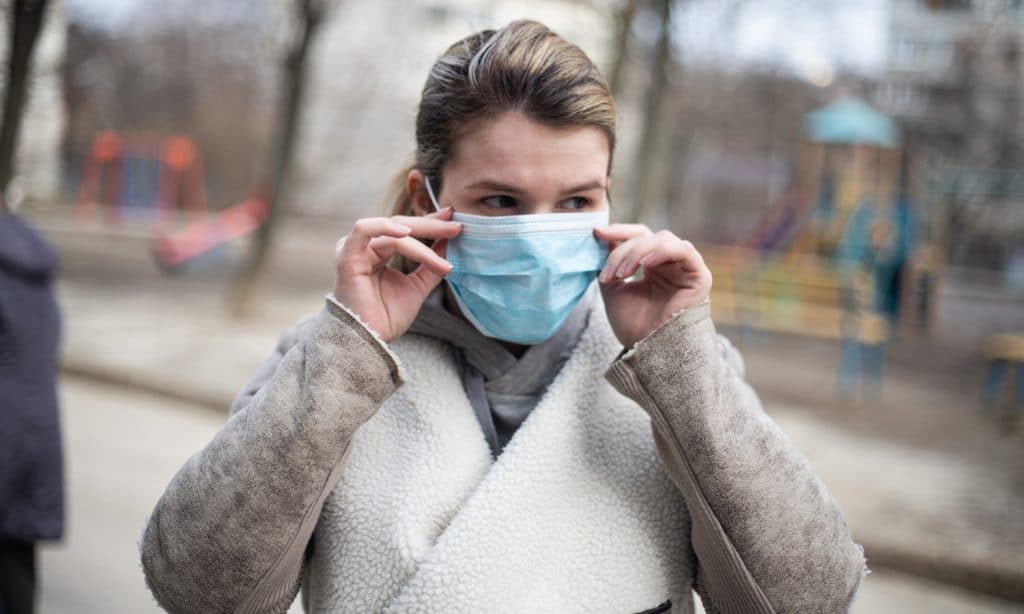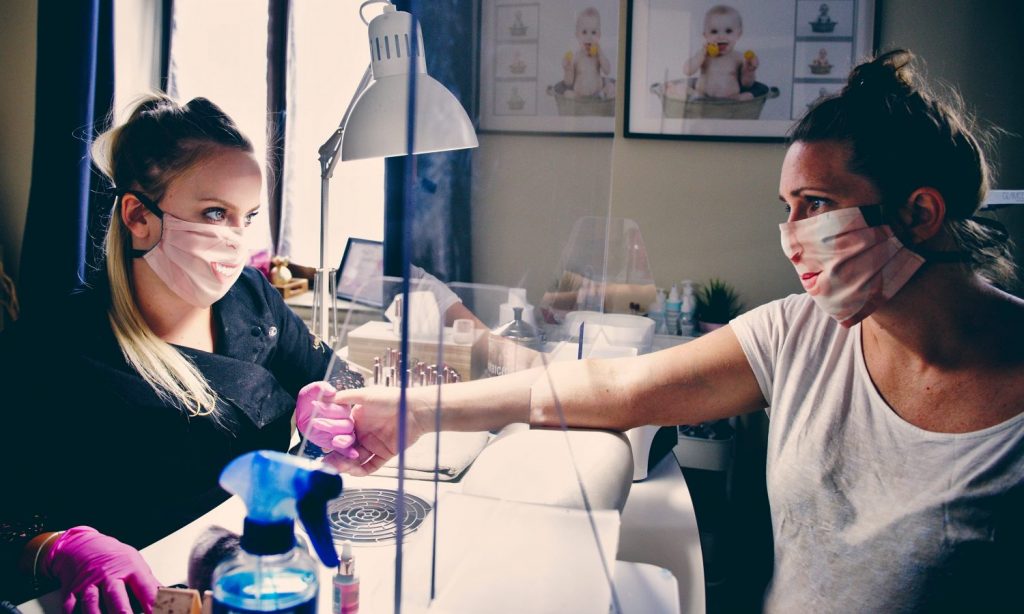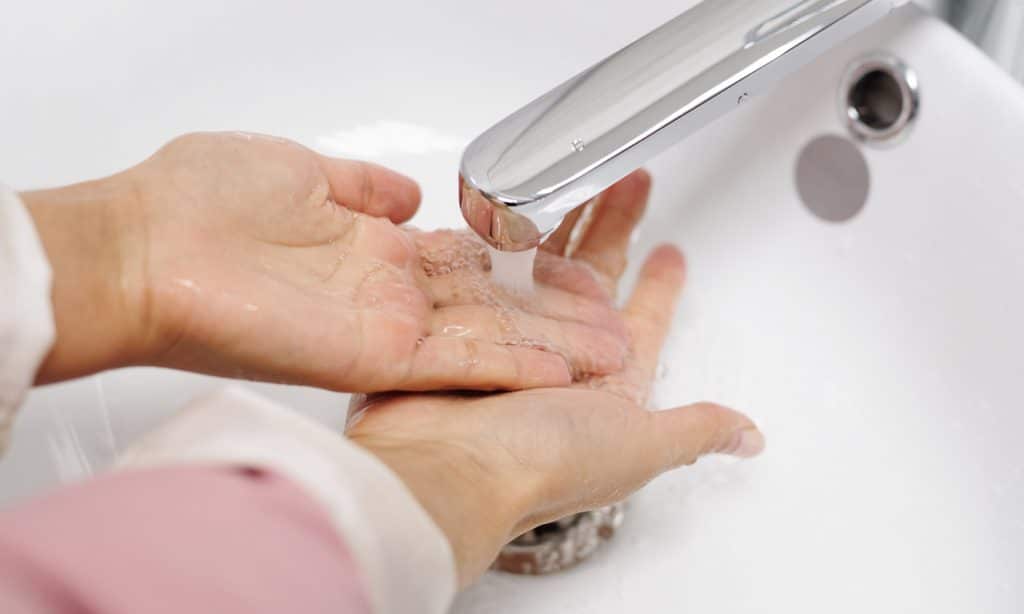Face masks are one of the fews tools we can use to curb the spread of COVID-19. Here’s how they work and why you should wear them.
Face masks have had a big year. As one of the most efficient ways of curbing the pandemic, their use has been politicized and highly discussed. While some think face masks are a breach of their freedom (they’re not), many states are asking people to wear their masks in order to keep themselves and others safe.
When it comes to the science, experts are clear on the benefits of face coverings. “The more people who wear a mask, the more the community is protected and therefore the more you individually benefit,” Dr. John Brooks told the New York Times. Still, there’s a lot we don’t know about face masks and it’s a prevention method that’s hard to accurately measure in effectiveness.
Here are some of the most important facts you should know about face masks:
The materials of the mask matter

The effectiveness of the face mask depends on how it’s made. The most effective ones, worn by nurses and doctors who are in constant contact with the virus, are N95 masks. When talking about people who aren’t exposed to these pathogens in their daily lives, face masks with at least two layers of cloth should provide sufficient protection.
RELATED: How To Communicate Clearly While Wearing A Mask
During the first months of the pandemic any sort of covering was considered effective. Now the goal is for everyone to wear a well-made, effective face mask. These kinds of masks can be washed and reused, which is not the case with surgical and N95 masks.
How does the mask work?

The masks work best when everyone in a community is using them. The clearest example of virus prevention is when the masks are worn by those who are infected. Their use directly reduces the amount of particles that are spread through talking and coughing. This is especially important when it comes to asymptomatic people, who may be responsible for over 50% of COVID-19 spread without knowing about it.
RELATED: Keep This In Mind When Choosing Your Face Mask
When it comes to the person who is wearing the mask, data suggests that the mask provides protection from the virus, however, to what degree is unknown. The studies that are available have been conducted under ideal conditions or with the use of mannequins, which don’t account for realistic situations. Still, it’s believed that wearing face masks reduce the viral load of the virus, resulting in less risky cases of COVID-19.
Only wearing a face mask isn’t enough

RELATED: COVID Is Airborne — What Does That Mean?
While an entire community wearing face masks regularly will definitely help in curbing the spread of the virus, it won’t do all of the work. Social distancing, proper ventilation and frequent hand washing are also important tools when battling the pandemic. In an ideal situation, people would use all of these tools regularly in order to keep themselves and others safe and in preventing shutdowns.


